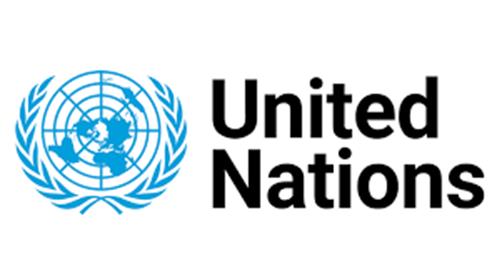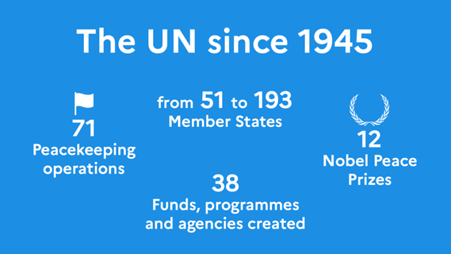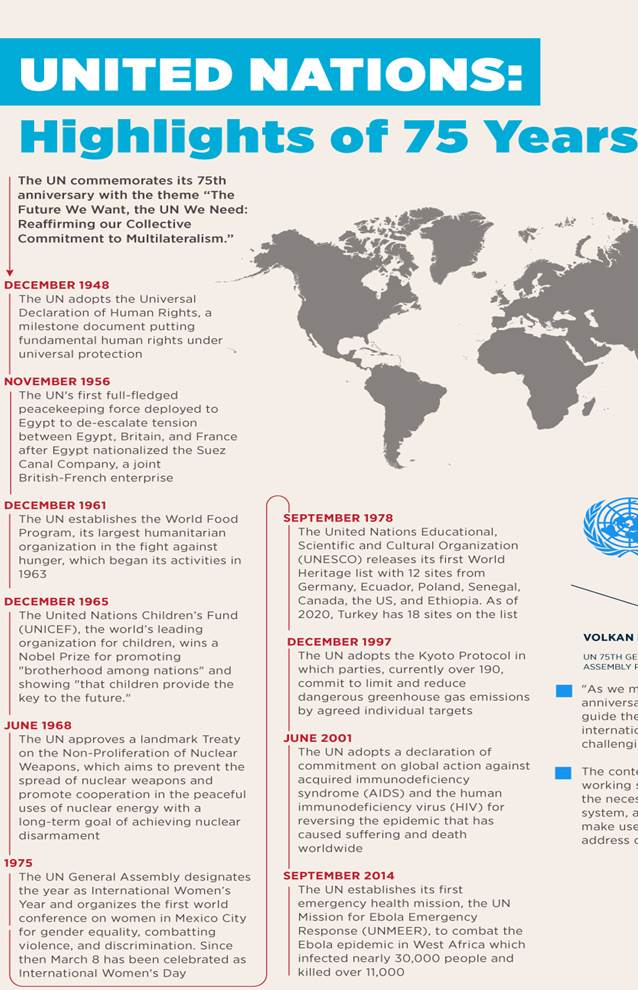Description

Disclaimer: Copyright infringement not intended.
Context:
- The Union Cabinet has approved the proposal for signing of an agreement between the Government of India and the United Nations on a ‘Way Finding Application’ to be used in the Palais des Nations, United Nations Office at Geneva (UNOG).
More on the news:
- The United Nations (UN) is an international organization founded in 1945.
- It is currently made up of 193 Member States. India is a founding member of the United Nations.
- The United Nations Office at Geneva (UNOG), consisting of five buildings and 21 floors, is housed at the historic Palais des Nations. Large number of delegates, members of civil society and general public visit UNOG to participate in various meetings and conventions.
- Keeping in view the complexity of buildings and huge participation, there was a requirement of a navigational application which can help the visitors and other delegates in finding their way inside the premises while adhering to all security perspectives.
- While the Global Positioning System (GPS) based Apps function in open space, a more precise in-building navigational App will assist the visitors in locating the room and offices.
- The project of development of ‘Way Finding Application’ has been conceptualized as donation from the Government of India to UN on the occasion of its 75th anniversary in 2020. The estimated financial implication for development deployment and maintenance of the App is $ 2 Million.
- The project consists of development deployment and maintenance of a software-based ‘Way Finding Application’ to facilitate navigation in the Palais des Nations premises of UNLG. T
- he application will enable users to find their way from point to point within the 21 floors spread across five buildings of UNOG. The App will work on Android and iOS devices with an internet connection. The development of the App has been entrusted to Centre for Development of Telematics (C-DoT), an autonomous telecom Research & Development centre of Department of Telecommunications (DoT), Government of India.
- The project will be significant contribution from the Government of India to UN. The project will not only highlight the technical capabilities of India but also enhance the prestige of country at the UN level platform. The App will make India’s presence felt in the UN and showcase its soft power in the form of strong software technology expertise – a ‘Made in India’ App in the mobiles of who come from across the globe.
UN Day
- UN Day marks the anniversary of the entry into force in 1945 of the UN Charter.
- With the ratification of this founding document by the majority of its signatories, including the five permanent members of the Security Council, the United Nations officially came into being.
- There is no other global organization with the legitimacy, convening power and normative impact of the United Nations.
- 24 October has been celebrated as United Nations Day since 1948.
- In 1971, the United Nations General Assembly recommended that the day be observed by Member States as a public holiday.


Disclaimer: Copyright infringement not intended.
Major Successes of UN
Peace
- Due partly to UN conflict resolution and peacekeeping initiatives, the number of people dying in conflicts has declined since 1945. Worldwide, fewer people died in conflict in the first decade of the 21st century than any decade of the 20th.
Ending famine
- Large parts of the world’s population suffer from poverty and hunger, and thousands die of malnourishment every year.
- But the numbers have fallen from the 20th century and UN’s World Food Programme, Food and Agriculture Organisation, and UN-sponsored emergency aid management can take some of the credit.
Countries who gave up The Bomb
- The UN had a hand in countries voluntarily deciding to give up weapons because they were too efficient.
- South Africa did this at the end of apartheid, and Kazakhstan did so when the Soviet Union fell apart.
Protecting heritage sites
- Protecting the Galapagos Islands and 1,000 other World Heritage sites. The UN cultural organisation UNESCO is a leader in protection of the world’s most important natural and historic places.
Law of the Sea
- Negotiated between 1973 and 1982, the UN Convention on the Law of the Sea (UNCLOS) set up the current international law of the seas.
- Conservation: the UN-led Law of the Sea aims to protect ocean eco-systems but it has been powerless to completely stamp out damage from overfishing by some nations.
Decolonisation
- The idea of racial equality and of a people’s right to self-determination was discussed in the wake of World War I and rejected.
- After World War II, however, those principles were endorsed within the UN system, and the Trusteeship Council, which monitored the process of decolonisation, was one of the initial bodies of the UN.
Human rights
- The Human Rights Declaration of 1948 for the first time set out fundamental human rights to be universally protected, recognising that the “inherent dignity and of the equal and inalienable rights of all members of the human family is the foundation of freedom, justice and peace in the world”.
Free trade
- The WTO creates a near-binding system of international trade law with a clear and efficient dispute resolution process.
Major Failures of UN
Climate change
- The existence of the UN has created a forum where nations can discuss new problems, and climate change is one of them.
- Good in theory: Despite 165 nations signing a UN climate treaty, greenhosue gas emissions continue to increase globally.
The invasion of Iraq
- The invasion of Iraq by the US in 2003, which was unlawful and without Security Council authorisation, reflects the fact that the UN is has very limited capacity to constrain the actions of great powers.
- The invasion proved a humanitarian disaster with the loss of more than 400,000 lives, and many believe that it led to the emergence of the terrorist Islamic State.
Refugee crises
- The UN brokered the 1951 Refugee Convention to address the plight of people displaced in Europe due to World War II; years later, the 1967 Protocol removed time and geographical restrictions so that the Convention can now apply universally.
- Tragedy: millions of refugees continue to live outside their homelands in camps with numbers rising in recent years largely due to the Syrian conflict.
Conflicts without end
- Across the world, there is a shopping list of unresolved civil conflicts and disputed territories.
- Palestine and Kashmir are two of the longest-running failures of the UN to resolve disputed lands. More recent, ongoing conflicts include the civil wars in Syria and Yemen.
Acting like it’s 1945
- The UN is increasingly out of step with the reality of geopolitics today.
- The permanent members of the Security Council reflect the division of power internationally at the end of World War II.
- The continuing exclusion of Germany, Japan, and rising powers such as India and Indonesia, reflects the failure to reflect the changing balance of power.
- Also, bodies such as the IMF and the World Bank, which are part of the UN system, continue to be dominated by the West.
Genocide in Rwanda and Srebrenica
- The UN had an “Assistance Mission” for Rwanda in 1994, which failed to stop the majority Hutus from killing almost a million members of the Tutsi minority.
- The massacre of more than 8,000 Bosnian Muslim men at the hands of Serb forces in Srebrenica in 1995 was another UN failure.
Rape and child sex abuse in the Congo
- UN peacekeepers were accused of paying for sex or raping women and young girls they were supposed to be protecting in the Democratic Republic of Congo in early 2005.
- There have been similar allegations in countries ranging from Cambodia to Bosnia to Haiti.
Spreading cholera in Haiti
- Genome testing showed that the world’s worst recent outbreak of cholera, which swept through Haiti after the 2010 earthquake, was likely started by a Nepali UN peacekeeping force who carried the disease.
- More 700,000 were infected and 8,000 died.
Iraq oil for food programme
- This UN programme enabled Iraq to gain relief from international sanctions by selling oil through the UN, which would supervise the delivery of food and medicine with the resulting cash.
- However, the money ended up in private hands and became the worst financial scandal in UN history.
Very recently in the UN’s inability to deal with crises from the ethnic cleansing of the Rohingya Muslims in Myanmar, to civil conflict in Syria, and the failure of the Security Council to adopt a COVID-19 resolution calling for ceasefires in conflict zones and a co-operative international response to the pandemic.
Concerns with UN:
- The United Nations has for too long been resistant to meaningful reform, too often lacking in transparency, and too vulnerable to the agenda of autocratic regimes and dictatorships.
- New threats also require new agility from the UN, threats that include theft of intellectual property and efforts to undermine internet freedom.
Way forward:
- N had been resistant to reform and vulnerable to autocratic regimes – presumably a reference to China. The U.N must focus on real action.
- It should aim at problem solving as it advances, security, development and human rights in parallel.
- The issue of development should be highlighted in the global macro framework.
https://pib.gov.in/PressReleasePage.aspx?PRID=1833818
1.png)















